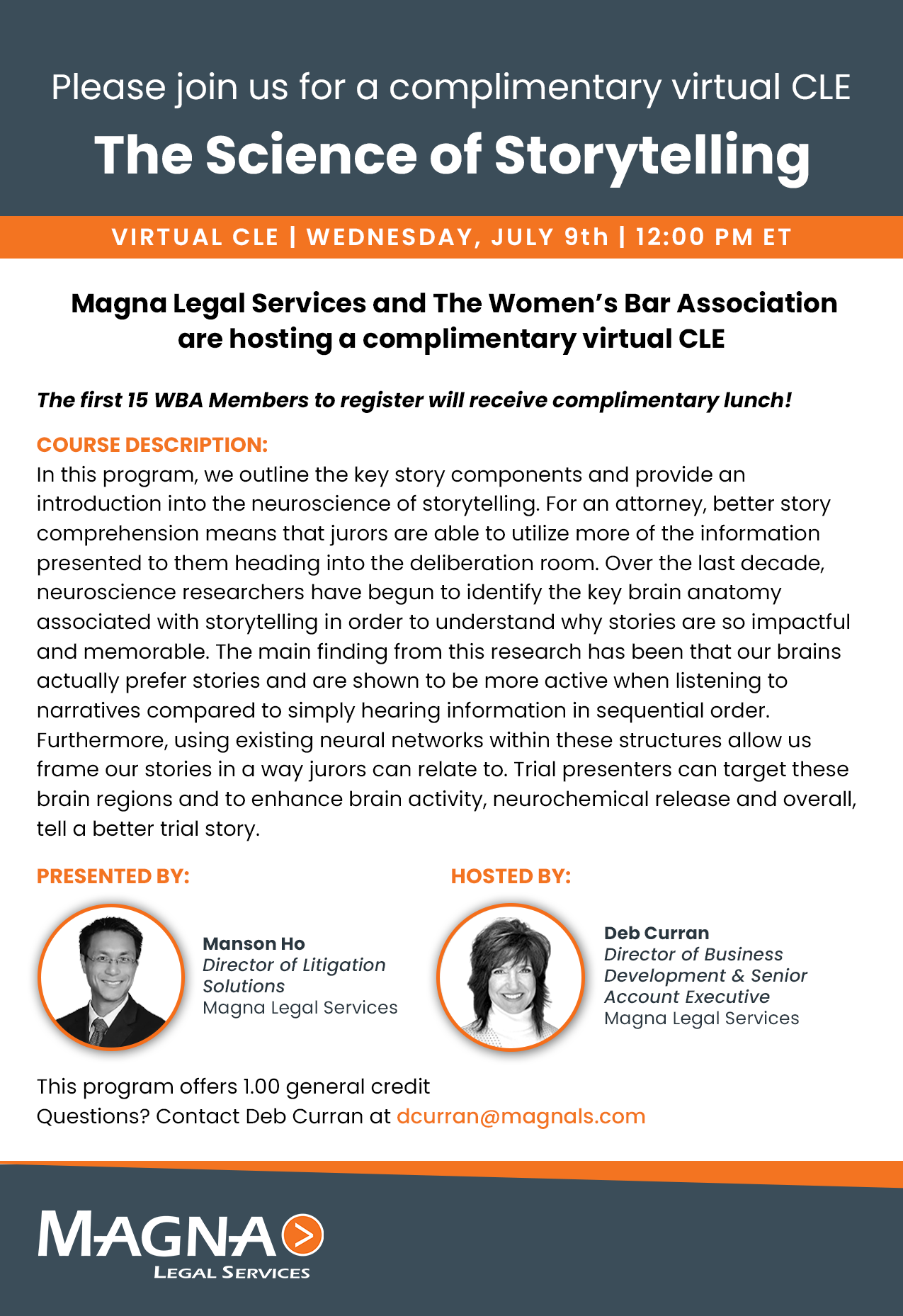
Event Details
The Women's Bar Association and Magna Legal Services present "The Science of Storytelling!" In this program, we outline the key story components and provide an introduction into the neuroscience of storytelling. For an attorney, better story comprehension means that jurors are able to utilize more of the information presented to them heading into the deliberation room. Over the last decade, neuroscience researchers have begun to identify the key brain anatomy associated with storytelling in order to understand why stories are so impactful and memorable. The main finding from this research has been that our brains actually prefer stories and are shown to be more active when listening to narratives compared to simply hearing information in sequential order. Furthermore, using existing neural networks within these structures allow us frame our stories in a way jurors can relate to. Trial presenters can target these brain regions and to enhance brain activity, neurochemical release and overall, tell a better trial story.


